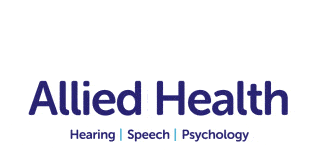Children’s Psychology

What is a Children's Psychologist?
Psychologists are university qualified allied health professionals who can assess and diagnose specific learning disorders, developmental delays and provide support with mental health, social and emotional well-being.
This may include helping with:
- emotional regulation,
- low mood and depression,
- self-esteem and confidence,
- stress associated with school or study,
- learning delays,
- anxiety or fears,
- obsessive-compulsive disorders,
- sleeping concerns,
- bullying or developing social skills,
- cognitive and educational assessments.
Our psychologists work collaboratively with clients and their families to provide evidence-based supports tailored to your choices, challenges, goals, and priorities.
Our psychology services are tailored for children and young people who need a little extra support with life’s challenges. We work collaboratively with children and their families to provide evidence-based assessments that are tailored to your child’s choices, challenges, goals and priorities. Services are warmly provided in a safe and welcoming environment. Everyone needs help at times, and we are here to offer guidance and support for you and your child.
We offer assessments for school aged children that evaluate cognitive abilities, academic achievement and ability to learn, and behavioural assessment for ADHD.
Psychologists can help children, young people and their families in many different ways.
What are the signs my child might benefit from this assessment?
Common reasons why parents seek support for their child include:
Symptoms of anxiety, for example;
- frequent worries and ‘what if thoughts’ about the future or unknown situations,
- avoiding new or anxiety provoking situations,
- difficulty separating from their parents,
- complaints of tummy aches or feeling sick, or
- difficulty winding down to go to sleep.
School problems, for example;
- refusing to attend school,
- difficulty concentrating and paying attention,
- social difficulties such as bullying or making friends.
Big feelings, for example;
- becoming easily frustrated or angry,
- struggling to cope when things don’t go their way
- sibling conflict,
- or engaging in violent or aggressive behaviours.
Symptoms of low mood or self-esteem, for example;
- negative self-talk,
- withdrawal from social or recreational activities, or
- increased fatigue and irritability.
Please don’t hesitate to call our friendly Clinical Support Team to find out more about how psychology services might be able to assist your child and family.
If you are concerned about your child’s cognitive development, or ability to learn, a psychologist can provide a comprehensive overview of your child’s learning abilities via a Cognitive or Educational Assessment.
Your child’s cognitive and academic profile can provide information about their learning strengths and areas of difficulty. It can help people working with your child select appropriate teaching and support strategies.
What are the signs my child might benefit from this assessment?
This assessment will benefit children who:
- have difficulty understanding or remembering simple instructions at home that you would expect them to be able to achieve based on their age and level of development.
- struggle to obtain basic academic skills (such as reading, spelling, and basic addition) after completing their first few years of school.
- are falling behind with academic achievement (in all areas or in one specific area of learning) and targeted help does not appear to be working.
- have therapists or teachers concerned that they are making less progress than expected which may be due to difficulties with their underlying thinking, memory and reasoning abilities.
- have not met milestones across a number of developmental areas that are not accounted for by a physical disability or other diagnosis.
What may this assessment tell me about my child?
The results of the assessment might indicate:
- that your child has an intellectual disability, facilitating access to supports that will assist them with daily life.
- that your child has a specific learning disorder (e.g., dyslexia), where strategies and recommendations will be provided to support your child in the classroom.
- how your child learns best, and therefore how intervention or learning supports should be tailored to best support them in their learning environment.
- that your child is gifted, and may benefit from an advanced program to maintain their engagement in their learning environment.
If you would like further information, please contact our friendly Clinical Support Team to discuss fees and rebates that may be available to you.
Do I need a referral to see a Children's Psychologist?

